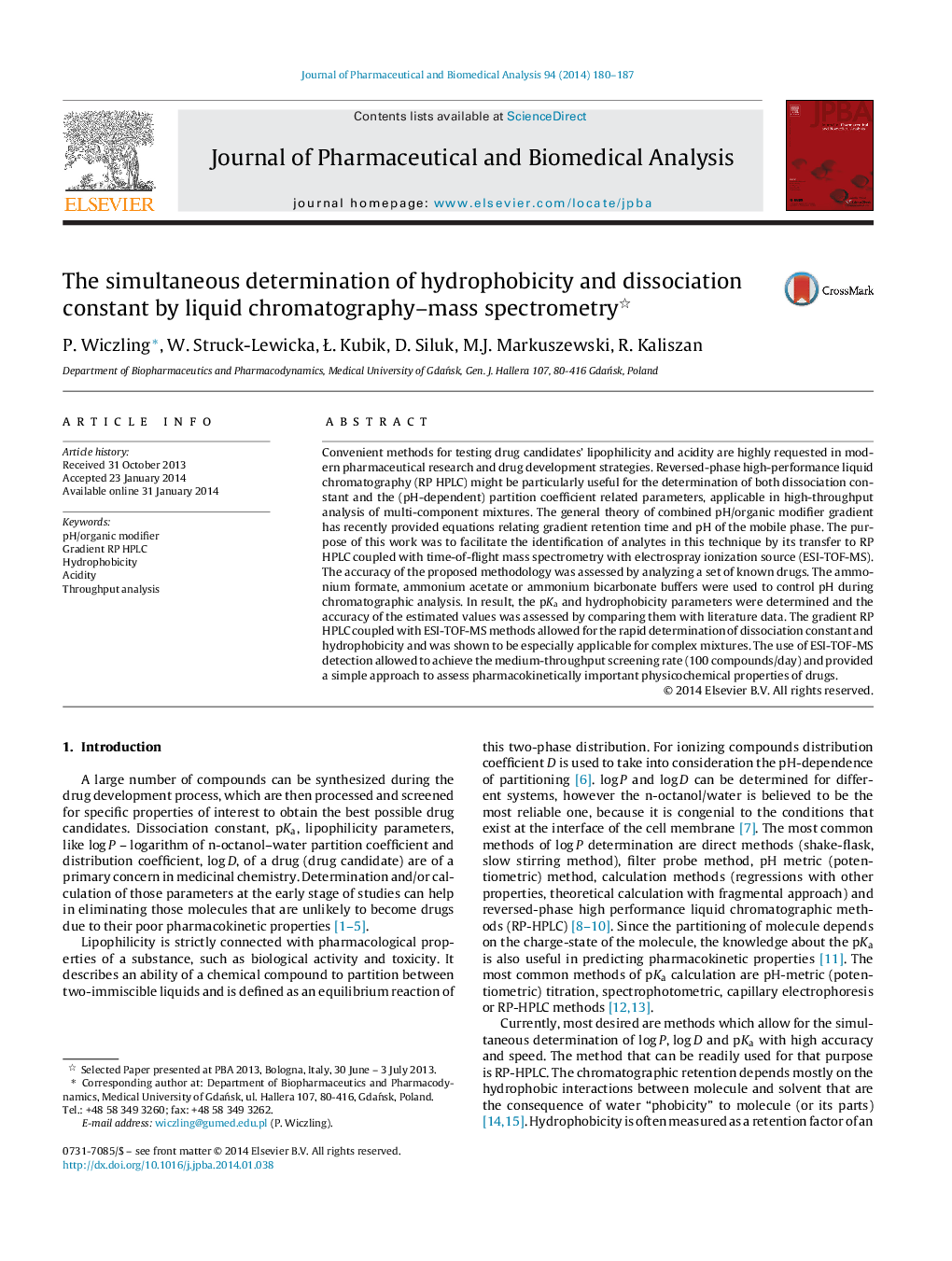| Article ID | Journal | Published Year | Pages | File Type |
|---|---|---|---|---|
| 1220439 | Journal of Pharmaceutical and Biomedical Analysis | 2014 | 8 Pages |
Convenient methods for testing drug candidates’ lipophilicity and acidity are highly requested in modern pharmaceutical research and drug development strategies. Reversed-phase high-performance liquid chromatography (RP HPLC) might be particularly useful for the determination of both dissociation constant and the (pH-dependent) partition coefficient related parameters, applicable in high-throughput analysis of multi-component mixtures. The general theory of combined pH/organic modifier gradient has recently provided equations relating gradient retention time and pH of the mobile phase. The purpose of this work was to facilitate the identification of analytes in this technique by its transfer to RP HPLC coupled with time-of-flight mass spectrometry with electrospray ionization source (ESI-TOF-MS). The accuracy of the proposed methodology was assessed by analyzing a set of known drugs. The ammonium formate, ammonium acetate or ammonium bicarbonate buffers were used to control pH during chromatographic analysis. In result, the pKa and hydrophobicity parameters were determined and the accuracy of the estimated values was assessed by comparing them with literature data. The gradient RP HPLC coupled with ESI-TOF-MS methods allowed for the rapid determination of dissociation constant and hydrophobicity and was shown to be especially applicable for complex mixtures. The use of ESI-TOF-MS detection allowed to achieve the medium-throughput screening rate (100 compounds/day) and provided a simple approach to assess pharmacokinetically important physicochemical properties of drugs.
Graphical abstractFigure optionsDownload full-size imageDownload as PowerPoint slide
